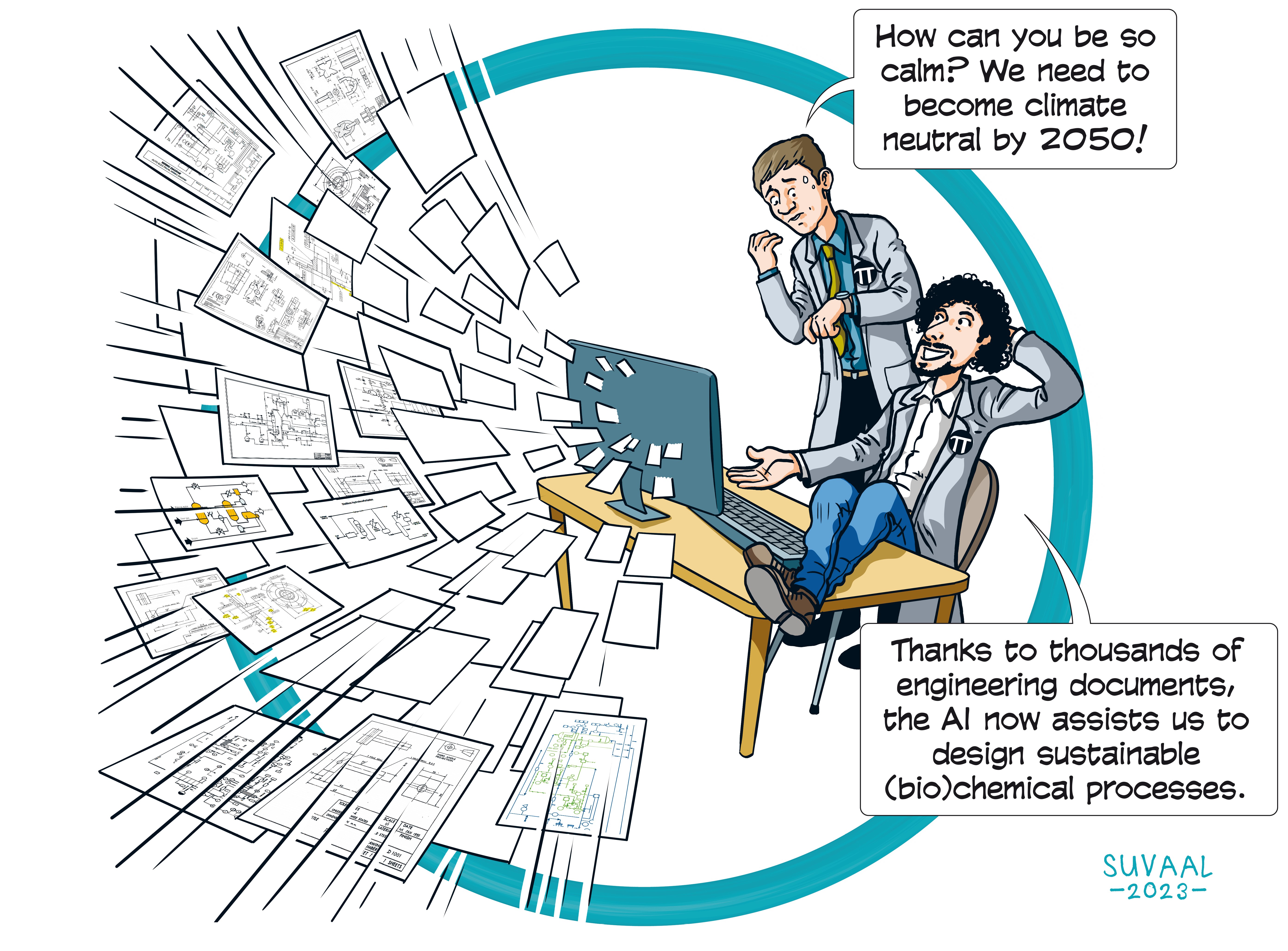Process Intelligence Research – Transforming chemical engineering with AI
Research Themes: Software Technology & Intellligent Systems


A TRL is a measure to indicate the matureness of a developing technology. When an innovative idea is discovered it is often not directly suitable for application. Usually such novel idea is subjected to further experimentation, testing and prototyping before it can be implemented. The image below shows how to read TRL’s to categorise the innovative ideas.
Summary of the project
As global chemical industries adapt to become greener there is a substantial need to transform the way that (bio)chemical processes are designed. Currently, process design heavily relies on experience of the engineers and heuristics.
The researcher develops novel methods and software for process engineers that increase productivity and support the design of sustainable (bio)chemical processes. The proposed methods combine Artificial Intelligence (AI) and engineering knowledge. One of the major challenges was to make the existing process data machine-readable. The researcher developed a computer vision tool that digitized thousands of existing engineering documents. Subsequently, the researcher extracted the underlying engineering principles from the digitized documents. This way, the AI algorithm learns from thousands of previous engineering projects. Finally, the researcher uses another AI algorithm, i.e., a reinforcement learning approach, that interacts with a process simulation environment. This reinforcement learning approach autonomously designs sustainable (bio)chemical processes.
If we want to go towards a sustainable or even circular economy a lot of different aspects need to be considered during a process design process – not only a narrow view on the process but also on the broader supply chain including fluctuating renewable energy supply. That is where the algorithms can be a real game changer helping the engineers to make the right decisions.
What's next?
The next step is to get more engineering data from industry. To advance AI for process technology, all the described components will be combined and applied to industry case studies. The researcher is collaborating with software companies to develop a product that can ultimately be used by the industry to design sustainable processes.
With or Into AI?
Both
